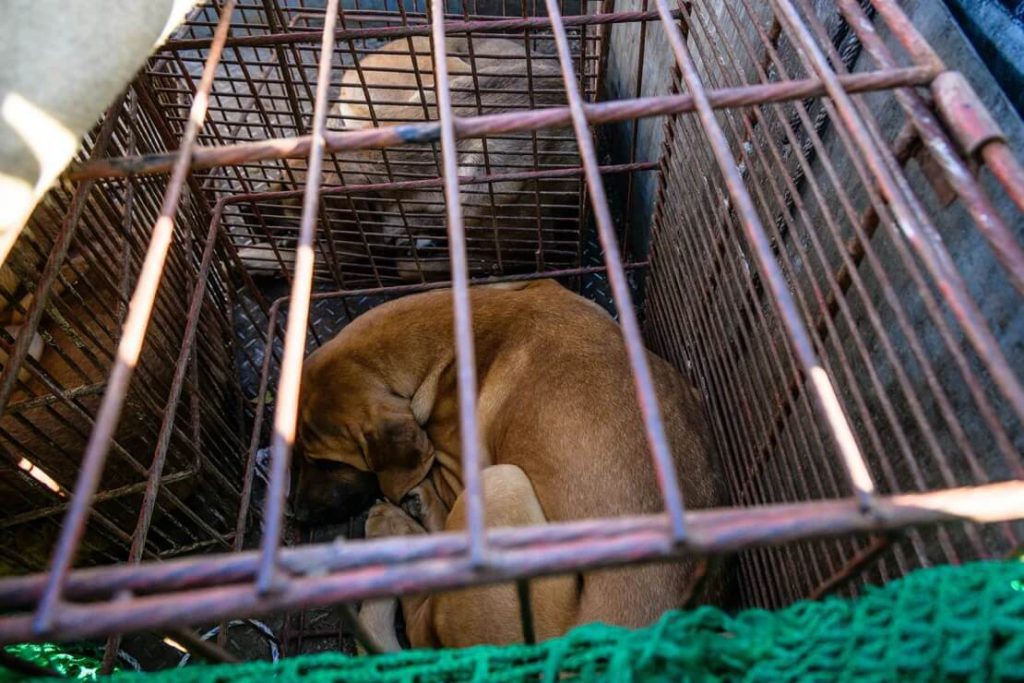Last Updated on 2 years by admin
Korea bans dog meat, marking a significant shift in legislation. On January 9, the parliament passed a law to end the breeding and slaughter of dogs for consumption. This significant move concludes a long-standing debate across the nation, marking an end to a historical and contentious tradition.
South Korea Bans Dog Meat: Political Consensus and Changing Perceptions

The legislation received unanimous support from different political factions, reflecting a shift in perspective towards dog meat consumption. This change aligns with South Korea’s swift modernization over recent decades.
The bill now awaits approval from President Yoon Suk Yeol. It has garnered support from both the ruling and opposition parties, and the First Lady, Kim Keon Hee, has also openly endorsed it. This reflects the changing attitudes towards animals in South Korea.
The new law specifically forbids producing and selling food items containing dog meat. This targets primarily industry participants like dog farmers and vendors, while consumers of dog meat products will not face penalties.
Penalties and Transition Period
Violators of this law, including those slaughtering dogs for food, face up to three years in jail or fines of up to 30 million Korean won (approximately $23,000). The law also provides a three-year transition period for businesses in the dog meat trade to adapt or close, with local government support for transitioning to new ventures.
Cultural Background and Declining Practice

Historically, dog meat was consumed in South Korea, especially during the summer and during times of food scarcity. However, the practice has faced increasing criticism, particularly from animal rights groups, and has seen a decline due to changing societal norms and increased pet ownership.
A Gallup Korea survey in 2022 showed a significant majority opposing dog meat consumption. Additionally, the number of restaurants serving dog meat in Seoul has dropped by 40% between 2005 and 2014.
HSI Korea’s campaign manager, Lee Sang-kyung, notes the evolving perception of dog meat consumption, attributing it to economic development and changing attitudes towards animals and food choices. He believes the new law reflects these societal changes.
Opposition and Industry Concerns

Despite the support, the bill faces opposition from dog farmers and related business owners who view it threatening their livelihood and traditions. Protests have occurred, highlighting the concerns of those in the industry.
Joo Yeong-bong, a dog farmer, told the BBC the industry was in despair, saying it was “an infringement of people’s freedom to eat what they like.”
“In 10 years, the industry would have disappeared. We’re in our 60s and 70s and now we have no choice but to lose our livelihoods.”
Joo Yeong-bong.
Meanwhile, an elderly citizen, Kim Seon-ho, 86 years old, was disappointed by the ban. He told BBC that dog meat has been like traditional food.
“We’ve eaten this since the Middle Ages. Why stop us from eating our traditional food? If you ban dog meat then you should ban beef.”
Kim Seon-ho.
Nevertheless, HSI’s Lee remains optimistic about the transition, noting that many in the dog meat industry are open to leaving but lack the means. With government support and compensation, he believes the change can be successful for those affected.
What do you think of the new regulations?
From picturesque landscapes to hidden gems and cultural adventures, follow KoreaTravelPost’s Twitter, Facebook, Instagram, LinkedIn, and Flipboard for a thrilling journey through the heart of Korea.
Related Posts
6,306 total views, 1 views today

















